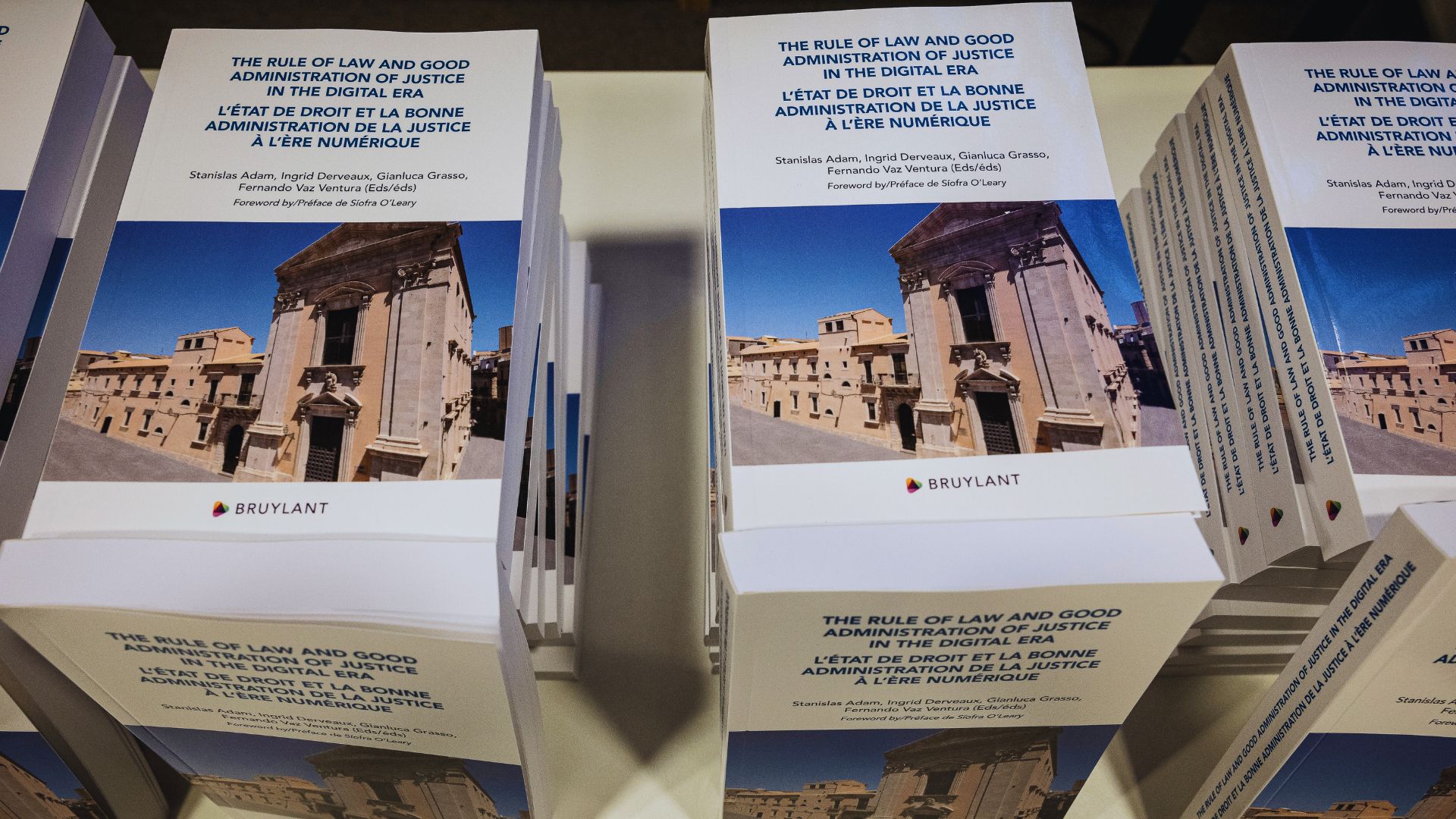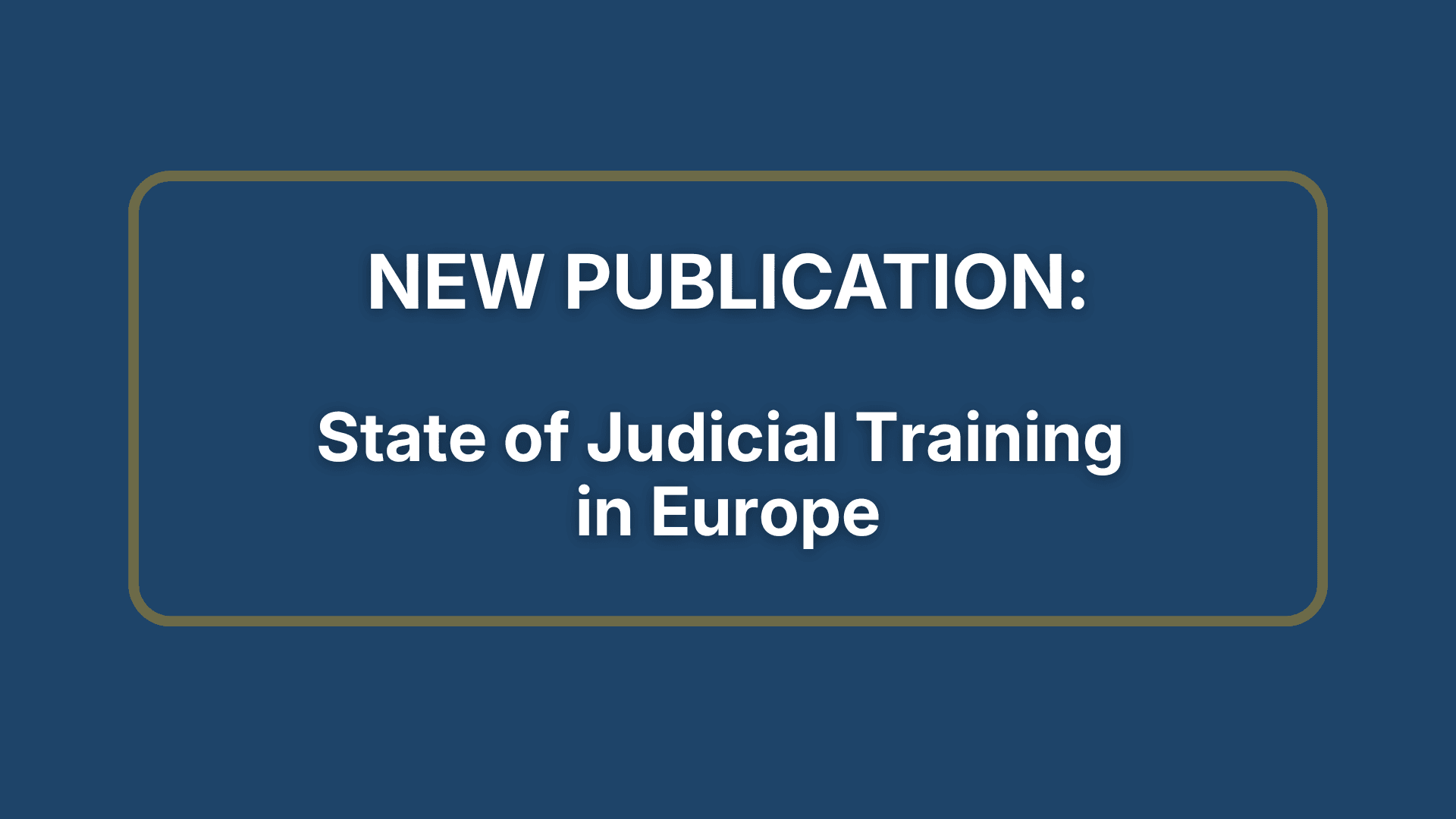The European Judicial Training Network (EJTN) recently launched its latest publication, ‘The Rule of Law and the Good Administration of Justice in the Digital Era’ (Brussels, Bruylant, 2024). This comprehensive and bilingual volume (FR/EN) is the result of collaborative efforts from key judges, experts and institutions on the rule of law in the European Union.
Edited by Stanislas Adam, Ingrid Derveaux, Gianluca Grasso and Fernando Vaz Ventura, with a foreword by Síofra O’Leary, and published by Larcier Intersentia, the publication stems from the expert contributions and enriching discussions at the second edition of the judges@europe forum held in October 2023 at the Siracusa International Institute for Criminal Justice and Human Rights. The forum brought together judges from 25 EU Member States as well as high-level speakers from key European and international institutions, including the Court of Justice of the European Union, the European Court of Human Rights, the Council of Europe and the United Nations.
The publication examines the contemporary challenges in which good administration of justice and increased demand for judges’ accountability rise for judicial offices in the digital era. Those issues are examined from three different but complementary angles:
- Judicial Accountability through Disciplinary Proceedings and Liability: Analysing frameworks and mechanisms ensuring judicial accountability through disciplinary proceedings, liability regimes, and transparency, while safeguarding judicial independence.
- Judicial Accountability through Performance in the Digital Era: Addressing the influence of digital technologies on judicial performance and efficiency, highlighting both challenges and opportunities of digitalisation applied to judicial offices.
- Judicial Accountability through Transparency: emphasising the importance of transparency and performance control in fostering public confidence in the justice systems, crucial for the good administration of justice in Europe.
As Ingrid Derveaux and Stanislas Adam point in their general conclusions, “judges in the EU have in common the immense responsibility to ensure that every person and every authority, irrespective of its power, is equally subject to the law, and that the law is properly and timely applied in cases brought before them. There can be no citizens’ trust in justice systems within the EU, and by extension no confidence in our constitutional democracies, if those basic functions are not fulfilled.” This book testifies to what judges can do for enhancing citizens’ trust in justice systems across Europe, in an ever-more complex technological, social, and budgetary context.
You can access the free version of the publication here.
EJTN and the editors wish to thank all the authors who made this publication possible and the following institutions for their support:
Authors:
- Anke Eilers
- Dalia Vasarienė
- Didier Reynders
- Emmanuel Coulon
- Francesco Depasquale
- Gilles Accomando
- Herman van Harten
- Ivana Hrdlickova
- José Igreja Matos
- Marco Fabri
- Martin Kuijer
- Milda Treige
- Raffaele Sabato
- Richard Devlin
- Roxana Ioana Petcu
- Siofra O’Leary
- Tatiana Veress
- Thomas Cassuto
- Villu Kõve
Institutions:
- Consultative Council of European Judges (CCJE)
- Court Of Justice of the European Union (CJEU)
- Directorate-General for Justice and Consumers (DG JUST)
- European Commission for the Efficiency of Justice (CEPEJ)
- European Commission on Democracy through Law (Venice Commission)
- European Court of Human Rights (ECtHR)
- European Network of Justice Inspection Service (RESIJ)
- European Networks of Councils for the Judiciary (ENCJ)
- International Association of Judges (UIM-IAJ)
- Judicial Integrity Network Advisory Board
- United Nations Office on Drugs and Crime (UNODC)
You can access the free version of the publication here.
Link to order the book at Lacier Intersentia here.




